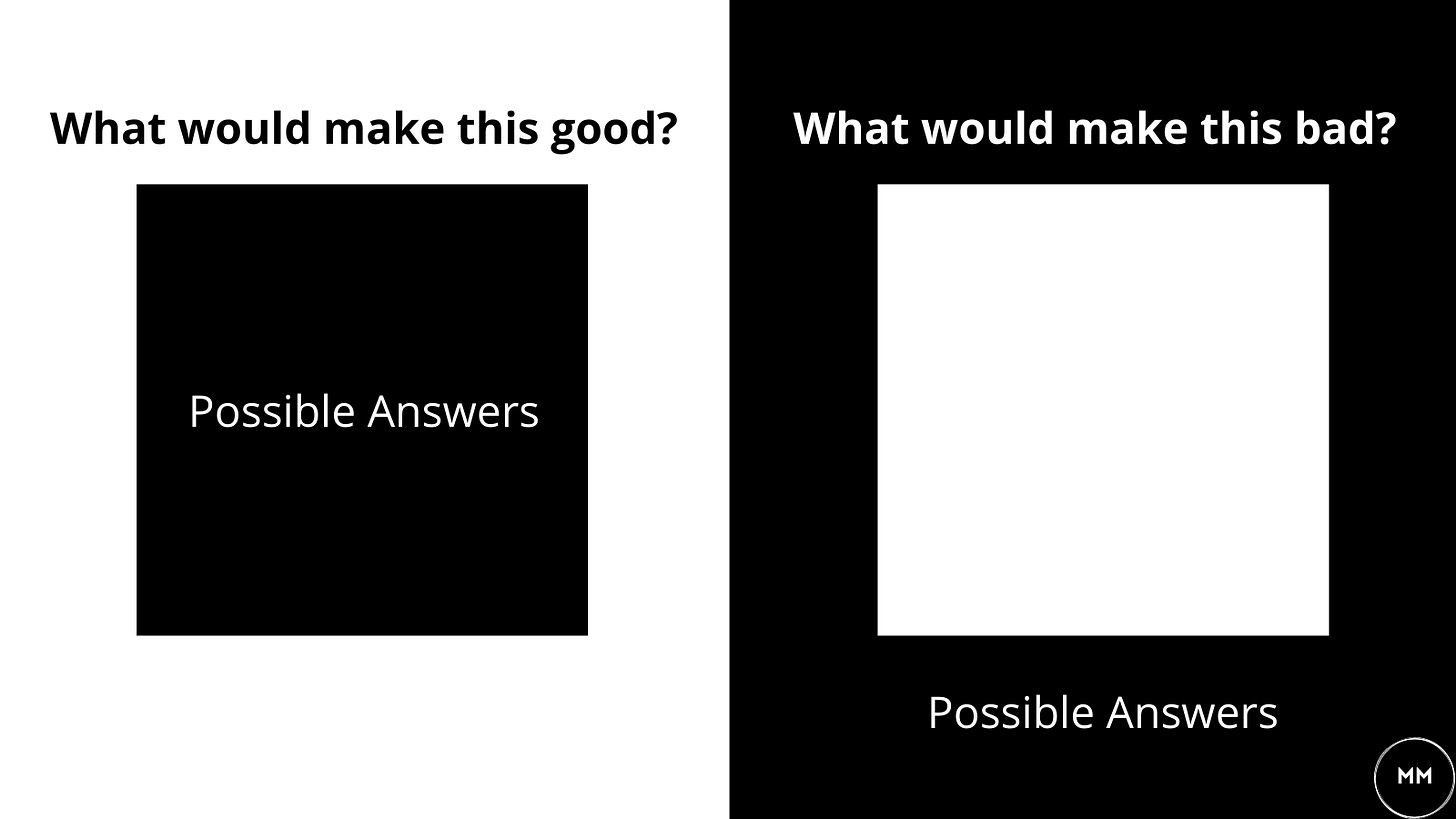Inversion Thinking: The simple thinking skill no one taught you
Flipping your thinking on its head for better insights
If I wanted to kill a lot of pilots as a meteorologist, how would I do that?
When he was a WWll meteorologist, this is what the now billionaire investor Charlie Munger asked himself.
His answer? Have pilots fly in conditions where they had iced wings and couldn’t land.
Why would Charlie spend time exploring what would make him fail rather than succeed?
Well, by asking himself how to be a bad meteorologist, rather than a good one, Charlie actually found out how to be a good meteorologist—avoid what would make him a bad one.
This is the mental model of inversion thinking; Rather than attempting to answer a question, flip the question you are asking.
The Greats Change the Question they Ask
Some of the most accomplished people of history employed inversion thinking.
Inverting has its origins in mathematics; it is what German mathematician Carl Gustav Jacob Jacobi encouraged his students to do. He found by inverting problems, he opened up the question to discovering new solution sets.
“man muss immer umkehren” or in english “Invert, always invert” — Carl Gustav Jacob Jacobi
Jacobi made significant contributions to ellipticals. He inverted elliptical integrals and focused on the nature of elliptic and theta functions; probably something you’ll never need to know.
But by changing the question he was able to see new answers.
Application
Inversion thinking is useful in all areas of life.
How do you live a good life, have good relationships, and a good career? That might be difficult to immediately answer with precision.
How would you live a bad life, have terrible relationships, and a bad career? Hopefully, some answers may come to mind quickly.
Perhaps answers such as poor health, toxic or negative people/mindset, and meaninglessness work come to mind; that’s great, now avoid these.
Takeaways
To better understand something, it helps to think about it in different ways. The more you do this, the more informed you will become.
Being more informed will help you make better choices and lead a more fruitful life or, at a very minimum, help you avoid making foolish choices and leading an empty life.
Using inversion thinking is one way you can do this.
Cliffhanger: What’s coming up in the next couple of weeks
On-Deck: Next week, Survivorship bias: What shot-up WWll fighter planes can teach us about thinking. Friends, this one—will be fun :)
In-the-hole: The Latticework model: a simple way to remember more of what you learn and compound your knowledge.
Announcements:
We’ve received overwhelmingly positive feedback; Our inaugural post hit 3,000 views in 2 days. Thank you all.
To further the spread of practical wisdom, we will begin to offer audio content. Keep an eye out for this in the coming weeks.


